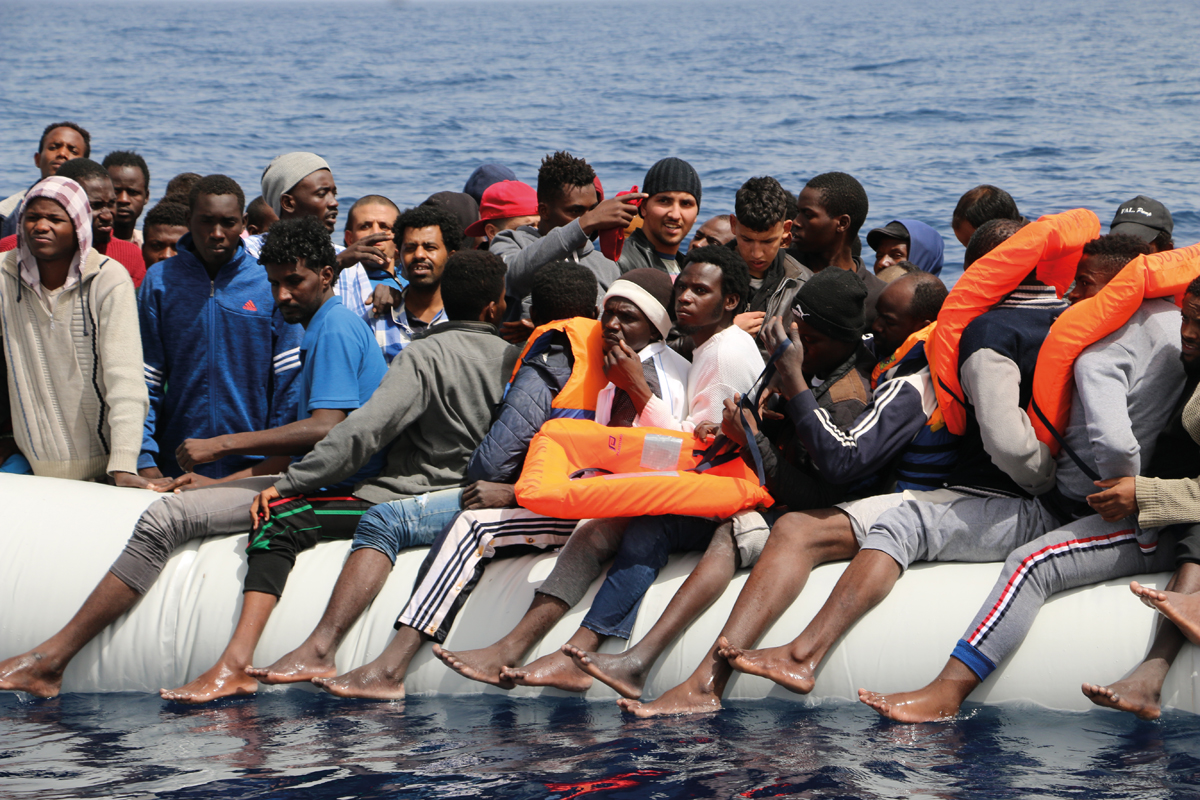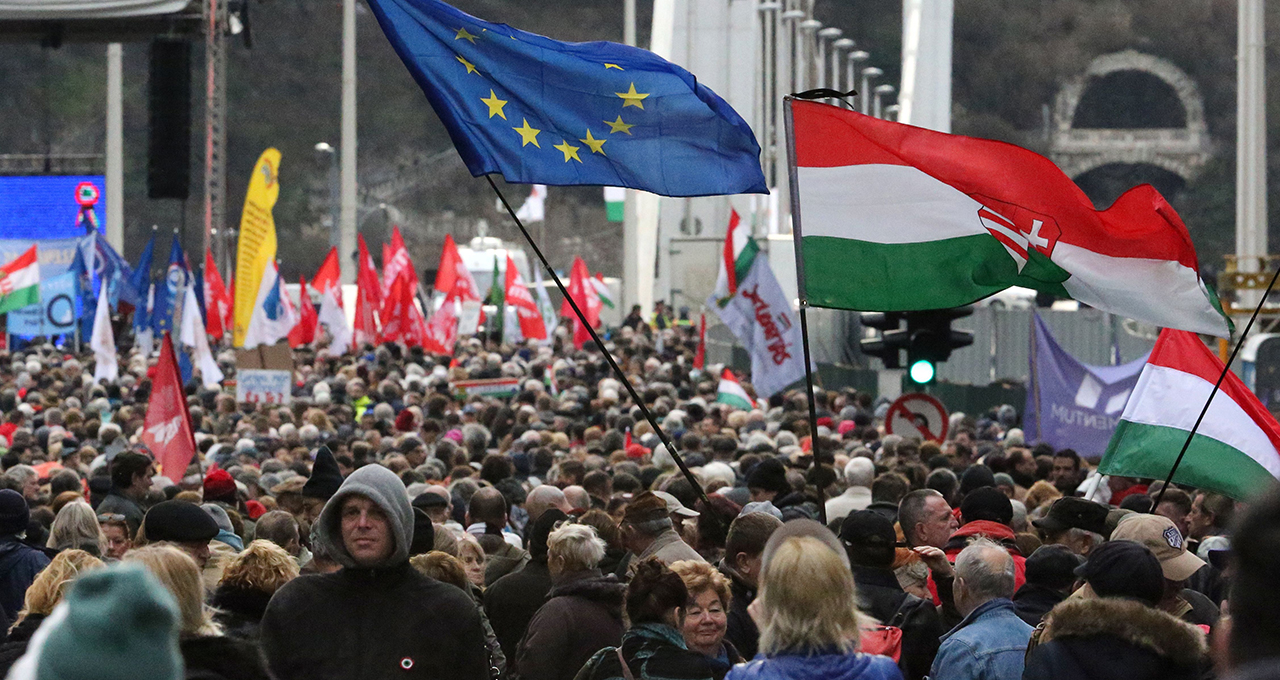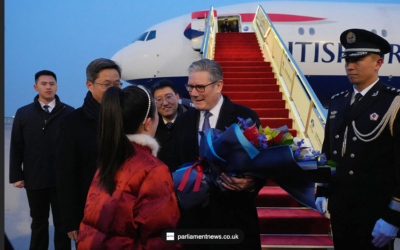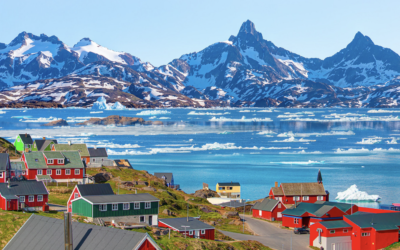As Europe grapples with the complexities of immigration, the continent finds itself at a crossroads where policy decisions on who to admit, integrate, or reject have profound geopolitical implications. Immigration is no longer a domestic issue confined to the borders of individual countries; it is a strategic factor that influences relationships within the European Union (EU) and shapes Europe’s standing with major global players like the United States, Canada, and Africa. The variances in immigration policies across European nations—ranging from restrictive border controls to open-door approaches—reverberate beyond borders, impacting alliances, trade, security cooperation, and diplomatic relations.
Metric 1: Alignment and Divergence within the EU
Within the EU, immigration policies are a major source of both alignment and divergence, influencing relationships among member states. The European Union’s founding principle of free movement allows citizens of member states to live and work across borders. However, immigration policies concerning non-EU nationals vary significantly from country to country, leading to political tensions and policy gridlocks.
Restrictive Policies: Central and Eastern Europe
Countries like Hungary, Poland, and Slovakia have adopted hardline stances on immigration, often refusing to accept asylum seekers and migrants under EU quotas. Hungary’s “Stop Soros” law, passed in 2018, criminalised aid to undocumented immigrants and NGOs that support them. These restrictive policies have led to significant friction within the EU, particularly with Western European countries like Germany and France that advocate for a more humane, collective approach to handling immigration.

This divergence affects the EU’s ability to formulate cohesive immigration strategies, as member states prioritize their national interests over collective action. The Visegrád Group (Hungary, Poland, Czech Republic, and Slovakia) has emerged as a counterweight to Brussels, advocating for stronger national sovereignty and border control. This ongoing tug-of-war has slowed down EU policy-making processes, complicating everything from trade agreements to internal security cooperation.
Open-Door Policies: Germany and Sweden
In contrast, Germany and Sweden have adopted comparatively open-door policies, particularly during the 2015 refugee crisis, when they welcomed hundreds of thousands of asylum seekers fleeing conflict zones like Syria, Iraq, and Afghanistan. Germany’s decision, driven by Chancellor Angela Merkel’s “Willkommenskultur” or “welcome culture,” was seen as a moral imperative but also served to enhance Germany’s influence within the EU.
However, this open approach has also had its challenges. It led to a surge in right-wing populism within Germany and strained relations with more conservative EU countries that perceived it as an attempt to impose a liberal immigration agenda across the bloc. Sweden’s experience with integrating large numbers of refugees has similarly been met with both praise and criticism, shaping its domestic politics and affecting its negotiations within the EU.
Metric 2: Bilateral Relationships with Non-European Powers
Europe’s varying immigration policies also play a critical role in its geopolitical relationships with non-European powers like the United States, Canada, and Africa. These relationships are shaped by shared security concerns, humanitarian values, trade interests, and historical ties, all of which are impacted by how Europe manages immigration.
The United States and Canada: Strategic Partners or Adversaries?
Transatlantic relations between the EU and North America are often seen through the lens of shared democratic values and security concerns. However, differing immigration policies have periodically caused friction. The Trump administration’s hardline stance on immigration, including travel bans and refugee caps, often starkly contrasted with the more humanitarian approach advocated by many Western European countries.

While President Joe Biden’s administration has shifted towards a more moderate stance on immigration, emphasizing refugee resettlement and family reunification, divergences still exist. The U.S. has urged Europe to adopt more stringent policies to curb irregular migration, particularly from Africa and the Middle East, which it sees as a potential source of security threats. In contrast, Canada, under Prime Minister Justin Trudeau, has been more aligned with the EU’s liberal stance, advocating for open borders, refugee protection, and diversity.
These differences in immigration philosophy influence broader geopolitical cooperation, particularly in areas such as counter-terrorism, intelligence sharing, and defence. For instance, a more restrictive U.S. stance on immigration may lead to increased scrutiny of European travellers, affecting visa waiver agreements and transatlantic trade deals.
Africa: A Continent of Origin and Transit
Europe’s immigration policies also have profound implications for its relations with Africa, a continent that is both a source and transit region for many migrants seeking to enter Europe. European countries like Italy, Spain, and France, which are on the frontline of immigration flows from Africa, have pushed for stronger partnerships with African countries to curb irregular migration.

These partnerships often take the form of economic aid, investments in development, and joint security initiatives aimed at tackling the root causes of migration, such as poverty, conflict, and political instability. However, Africa’s reaction to Europe’s policies has been mixed. While some countries welcome European aid and investment, others criticize Europe’s focus on border control and deportations, arguing that such measures undermine Africa’s sovereignty and development.
For example, the EU-Turkey migration deal, which saw the EU pay Turkey to keep refugees from reaching Europe, was mirrored in efforts to strike similar deals with African nations like Libya and Niger. These deals, however, have drawn sharp criticism from human rights organizations, which argue that they violate international law and put migrants at risk. Such policies could strain diplomatic relations between Europe and Africa, undermining cooperation on other key issues, such as trade and climate change.
Metric 3: Internal Political Stability and Foreign Policy Orientation
Immigration policies also play a critical role in shaping the internal political stability of European countries and, consequently, their foreign policy orientations. Countries with high levels of immigration have seen the rise of populist and nationalist movements, which often advocate for stronger borders, reduced immigration, and a reevaluation of the country’s role in international organizations like the EU.
The Rise of Populism: France, Italy, and the United Kingdom
In France, the political landscape has been significantly affected by debates over immigration. The rise of Marine Le Pen‘s National Rally (formerly National Front), a right-wing party that advocates for strict immigration controls and a nationalist agenda, has influenced mainstream parties to adopt tougher immigration stances. This shift impacts France’s foreign policy, as it seeks to balance domestic political pressures with its historical commitment to human rights and international cooperation.

Italy’s stance on immigration has similarly shifted with the rise of right-wing parties like Lega Nord and Brothers of Italy. In recent years, Italy has pushed for a harder line on immigration, advocating for the closure of ports to migrant boats and calling for greater burden-sharing among EU member states. This hardening stance has led to tensions within the EU and strained relations with Mediterranean neighbours like Tunisia and Libya, from where many migrants embark on their perilous journeys to Europe.
The United Kingdom’s decision to leave the EU—Brexit—was heavily influenced by debates over immigration and border control. The Brexit vote has reshaped the UK’s foreign policy, moving it away from EU integration towards a more independent global role. The UK now pursues its immigration policies independently of the EU, which has led to new challenges in managing its borders, negotiating bilateral agreements, and redefining its relationships with both European and non-European countries.
Metric 4: Multilateralism and Global Governance
Finally, varying immigration policies among European countries have significant implications for multilateralism and global governance. Europe has traditionally been a champion of international institutions and frameworks, such as the United Nations Refugee Convention and the Global Compact for Safe, Orderly, and Regular Migration. However, diverging national policies can undermine Europe’s ability to present a united front on the global stage.
The Impact on Global Migration Governance
Europe’s internal disagreements over immigration policy weaken its ability to lead global efforts to manage migration in a humane and orderly manner. For example, Hungary and Poland’s refusal to sign the UN’s Global Compact on Migration in 2018 created divisions within the EU and reduced its negotiating power in international forums. This divergence complicates the EU’s relationships with countries in the Global South, where many migrants originate and transit.
Europe’s varying immigration policies also influence its participation in multilateral institutions like the International Organization for Migration (IOM) and the UN High Commissioner for Refugees (UNHCR). Countries with more restrictive policies may be less inclined to support funding or initiatives aimed at improving migrant welfare, leading to challenges in forging global consensus on key issues such as refugee resettlement and humanitarian assistance.
Takeaway: Navigating the Geopolitical Landscape
Europe’s immigration policies are not just domestic decisions; they are critical factors that shape the continent’s geopolitical relationships both within and beyond its borders. The varying approaches among European countries reflect deeper divisions about national identity, sovereignty, and the continent’s future role in global affairs. As Europe continues to grapple with immigration, the choices made by individual countries will have far-reaching consequences for regional cohesion, global partnerships, and international governance.
Navigating this complex landscape requires more than just border policies; it demands a comprehensive understanding of how immigration shapes geopolitics, a commitment to shared values, and a willingness to engage in open dialogue and cooperation—both within Europe and with the wider world. Only through such efforts can Europe hope to find a balanced approach to immigration that upholds human rights, fosters stability, and strengthens its position as a global leader.


